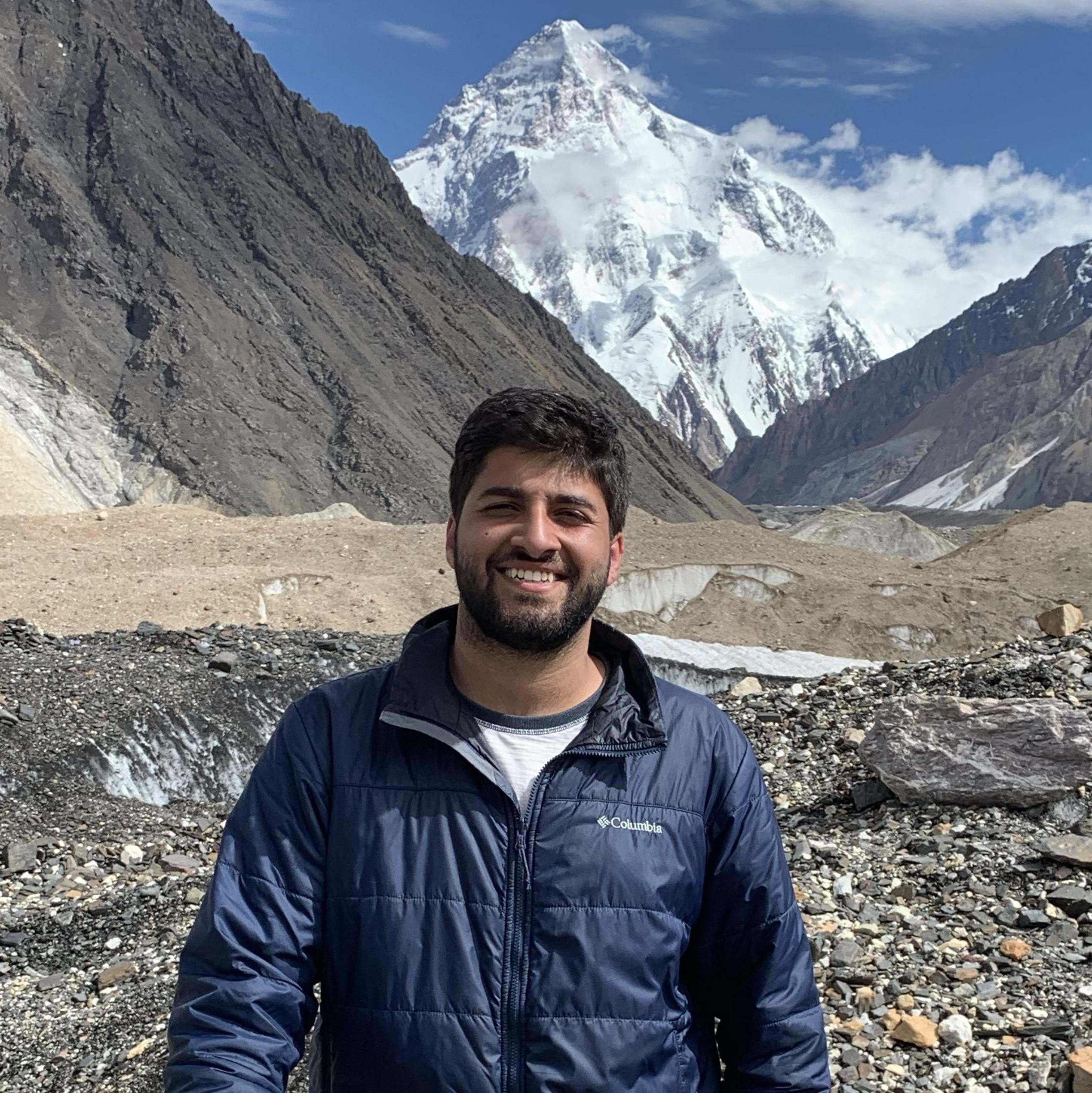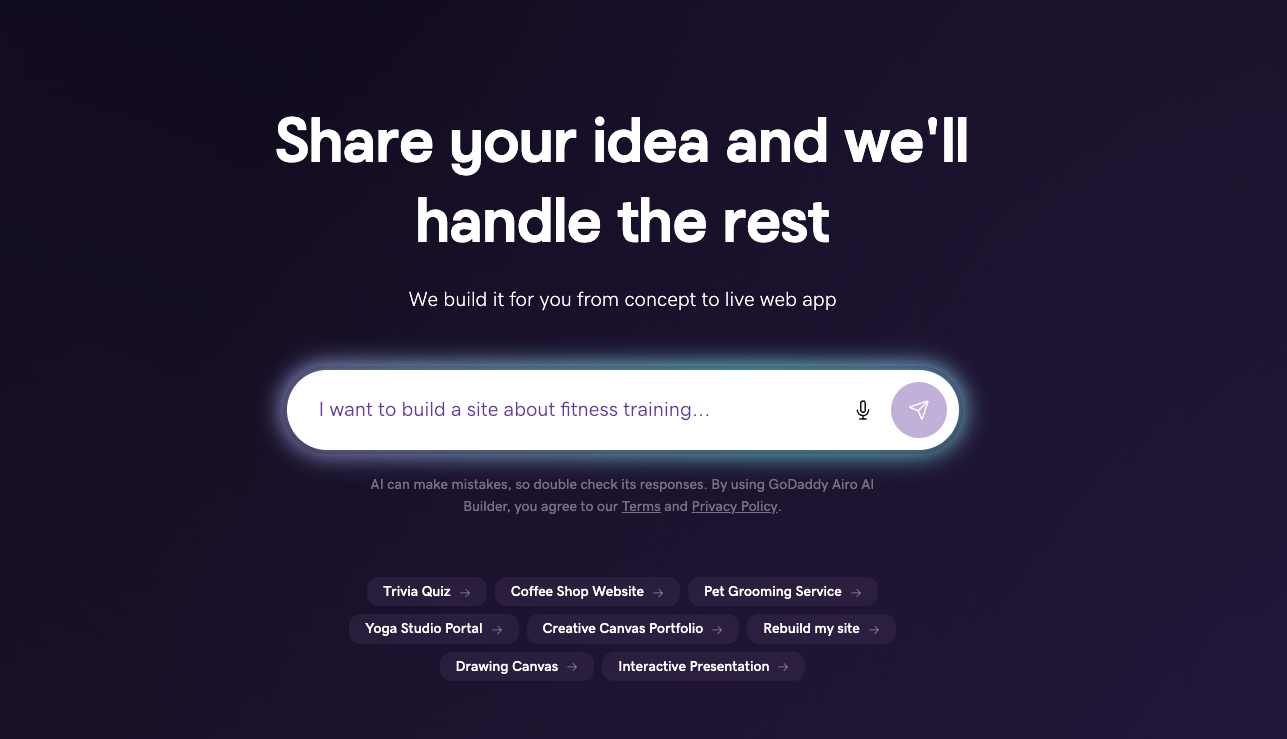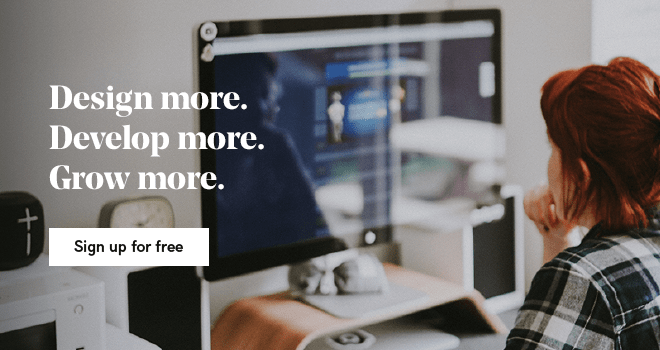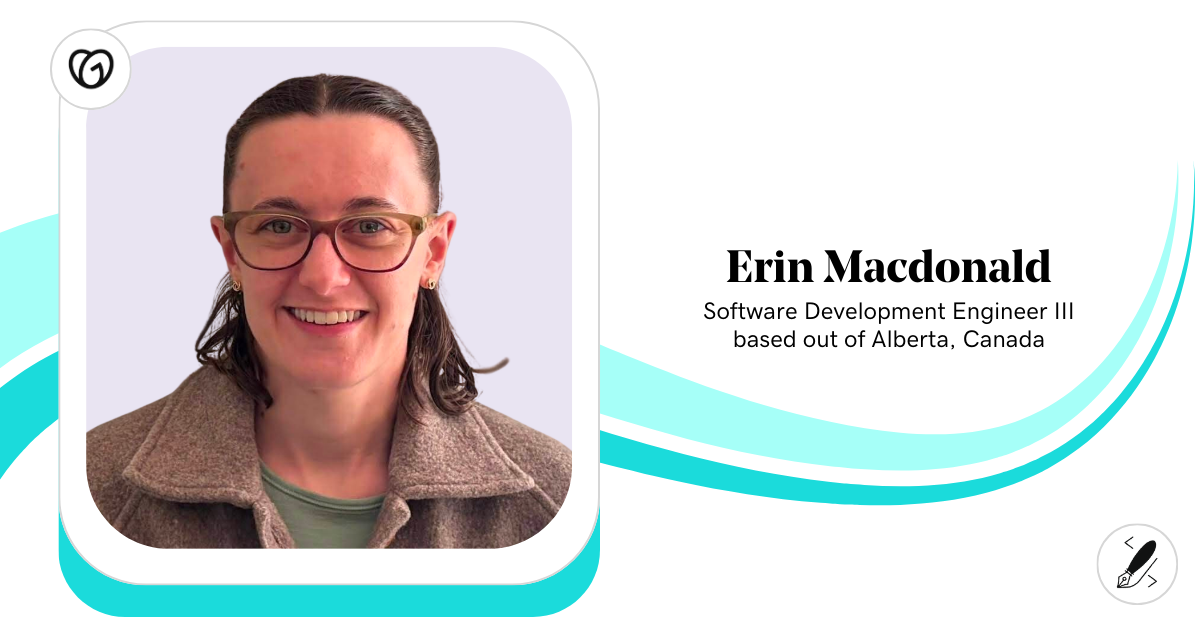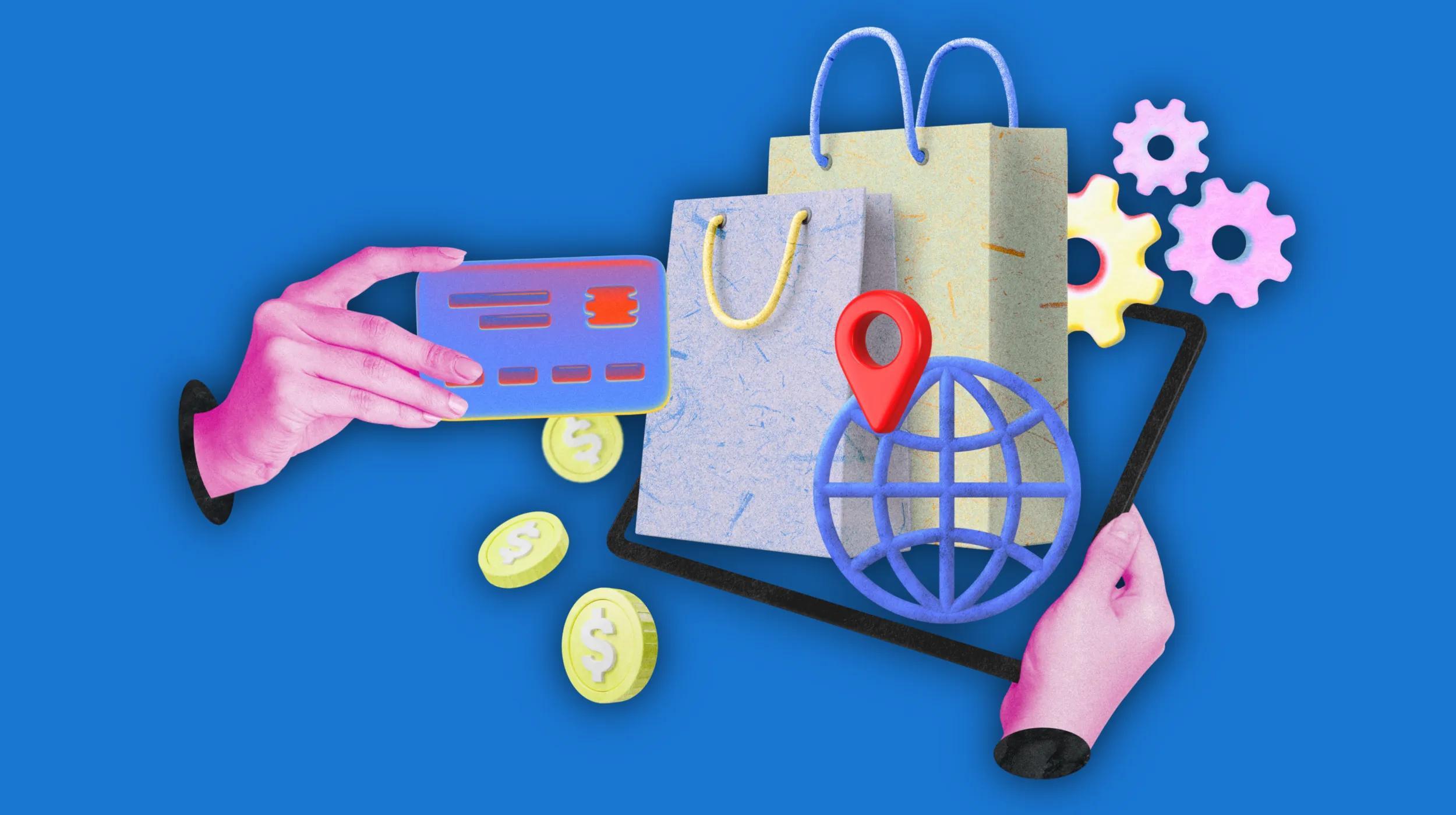Emaad Paracha operates Abstract Hub, a digital agency with offices in Toronto and Karachi that handles everything from web design to AI. You can catch up with him on Instagram, Facebook and LinkedIn.
The who:
Given a business name is so central to a brand, we tend to put a lot of importance on it. How did you arrive at a name, and how do you feel about it now that you’ve been in business a while?
This was probably one of the hardest parts of the initial setup of the business. We needed to pick a name that can resonate well with clients and us alike, not be too restrictive, and remain future proof to changes in the business. After considerable thought, we went with Abstract Hub, a name that, as the name suggests itself, can be abstracted to multiple domains. It isn’t too short or long, doesn’t restrict us to one specific industry, and the “Hub” part describes us as a hub for multiple offerings.
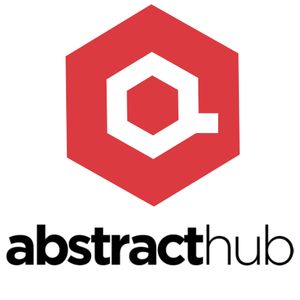
With some brands, location is a key component. Is there anything about the place you live and work that’s shaped your own brand?
Even though we’re slowly transitioning to a more virtual world, more so than before because of COVID-19, I definitely agree that location and your surroundings, people and business-wise, can have a huge impact. Having presence in two of the world’s most fast-developing and fast-paced cities has not only helped promote and grow our business faster but also bring new opportunities and new partners who have helped expand our business and offerings.
Even though this company was initially focused on developmental projects such as prefabricated housing and solar powered water purifiers, we’ve now focused more on new and cutting edge IT services, specifically on artificial intelligence and augmented reality, and being present in Toronto and in Karachi has made Abstract Hub privy to the fast-paced technology world.
New startups and businesses start every day in both cities, and with new businesses grow new opportunities that can be tapped into, highlighting the benefits of being present in such locations.
How would you describe your professional experience and background?
My personal experience has been somewhat all over the place, ranging from web/cloud development and machine learning to astrophysics. However, all of them have played a considerable role in the set up and operations of Abstract Hub.
I started off as a freelance web developer and graphic designer, taking on projects in five countries (USA, Canada, Finland, UK, and Pakistan). Along with that, I graduated from the University of Toronto with a degree in Astrophysics, Mathematics, and Economics. During my studies there I researched on using machine learning and AI to help aid in understanding astrophysical simulations (if anyone is interested, it was more specifically using machine learning to predict the outcome of planetary collisions).
Towards the end of my studies, I also delved into cloud development and have also worked as a Cloud Technical Consultant and Solution Architect for a Chicago-based startup, helping migrate companies to the cloud and develop AI-enabled applications on the cloud.
Could you describe the scope of your operation?
Abstract Hub initially started off as a smart developmental solutions provider, selling prefabricated homes and solar water purifiers. However, anticipating more potential, we also branched off into IT services, which is where we make most of our revenue. We specialize in augmented reality and virtual reality apps and products, and have developed Instagram filters for several brands.
Along with that, we help develop websites, applications, help cater to branding and graphic designing, develop AI-enabled solutions (either on the cloud or separately), and help with cloud development and migrations.
Some entrepreneurs describe an aha! moment, the instant they decided it was time to take things into their own hands. Could you describe any of those moments you’ve had?
When I first started working as a freelancer, my work was mostly just backend work. I used to get orders from different companies who used to handle client management/communications themselves. Eventually, when I started working at IT and tech startups, I became more comfortable with not only backend work but also client management, talking to them about their requirements and working with them directly.
And it wasn’t just comfortable, I honestly loved it. It was wonderful talking to clients, understanding their needs and being able to talk to them directly. This is what helped start Abstract Hub and our IT services, since I could act both as a technical frontend and backend person, helping develop solutions as well as present them to clients, something that I find is both fun and a great learning experience as well.
The what:
What kind of projects do you prefer to work on?
I wouldn’t say there is one specific preference. As cliche as it may sound, we try to not live in our comfort zone and love to take on new and unique projects. There are certain services that we have more expertise in, by virtue of more past projects, such as AR/VR development, website development, and graphic design. However we are proficient with any and all services within our offerings and aim to give our 100% in any case.
Could you describe your typical client (if you have a typical client)?
There is no one typical client, and that’s kind of what I love about this work. Our clients and their requirements differ project to project and it not only gives us an opportunity to think outside the box, an area where we excel, but also hone our skills more. Our clients range from the large clients, social media groups with 200,000+ users and multinational corporations, to medium sized businesses and small startups. Each project and client, whether big or small, come with their own set of unique requirements, allowing us to implement what we know and to build upon that more, helping us grow as a company.
Sometimes we’re in a position where it’s necessary to turn down projects or even fire clients. What do those situations look like for you, and how do you manage them?
In our experience, we’ve had two such scenarios, but with different causes. One was an extremely uncooperative client, and the other cooperative but with a large list of requirements. We do try to give uncooperative clients as much benefit of doubt and leeway as possible. However, there does come a point where if the client’s interests lie somewhere else, it would be best for both sides to forgo the business relationship.
The latter, though, brings up important questions for us as a business: how much can we commit to and how well can we allocate our resources accordingly. If we do not have resources available to allocate to new projects, we try our best to be upfront with the client in making that known so as to not waste our or their time.
In our eyes, it is important to be able to give projects the attention and care they deserve. And if the requirements are such that we may not be able to give our 100%, it is best to let the client know so they can look for potential alternatives.
Could you describe a project that you feel exemplifies you at your best?
Every project has its own positives and negatives, and each has contributed in different ways to my learning, the business’ learning, and in other ways. However, one project that I personally enjoyed doing and learning along the way involved Knowledge Mining. An engineering company had tons of physical blueprints of projects they had completed in the past (hydro and electric systems within buildings) and whenever a field engineer used to call in regarding a part number etc., their support department had to sift through multitudes of papers to find the blueprint they were looking for.
These support wait times were, in some cases, over two to three hours. I helped develop a cloud-based knowledge-mining application where scans of these documents would be stored on the cloud, processed and transcribed using machine learning, and sorted intelligently so engineers would no longer have to call in but instead go to an online portal and search the keyword they needed, bringing down two to three hours of wait time to two to three minutes. This project involved several of our offerings, cloud development, AI-enabled applications, web development, and solved a pressing problem the company had been facing for several years.
The how:
An obvious metric for measuring our own success is how much you got paid versus how much time it took. In your experience, what are the advantages and drawbacks here?
A lot of people say money doesn’t matter, experience does. However, I follow a tangent belief where both are equally important, and a third as well: the indirect marketing potential your project holds. That’s something a lot of people in similar businesses often overlook.
Yes, when you’re starting out you need to prioritize experience over money, and at some point money does become way more important. But another metric for success should definitely be the marketing potential of each project completed. A project with mediocre pay but one that leads to 10 other opportunities is far better than a one-off project worth more monetarily.
Comparing earnings to time taken is nevertheless important as well, but we shouldn’t disregard extra time that is spent learning something as “unsuccessful.” We may be able to do a project we’ve done many times before in very little time, but a project where we have to learn new things and thus spend more time is equally important in that it helps with learning.
Are there any resources (e.g. apps, processes) that you’d recommend to an up-and-comer?
They’ve probably taken off more so than ever because of COVID-19, but websites that offer online courses are a popular yet still greatly untapped resource. For anything and everything. You can probably find a course for pretty much anything online, whether on a certain educational website (Udemy, Coursera etc.) or even on YouTube.
And they honestly do not take as much time as it may seem either. Twenty-four hours in a day is a lot if you portion them out and dedicate even one or two hours to learning what you may want to learn or excel in. Even though experiential learning is still important, you need to be able to start somewhere. And websites that offer online courses and even YouTube are amazing tools to help kickstart your next move in whatever it may be!
How does GoDaddy Pro fit into what you do? Could you recommend any ways to get the most value out of it — especially to someone just starting out?
Being a company who has to manage 25-30+ sites actively and ensure they're always updated and secure, GoDaddy Pro and (especially) The Hub by GoDaddy Pro are nothing short of lifesavers. They are the perfect control panels for any web developer, small or large, and allow me to manage each and every one of the sites from one place without having to login to each of them.
Another thing I really love is how they've integrated Delegated Access to them so I can jump into clients' GoDaddy portals to manage anything I need with a click of a button. I can get timely alerts if any site ever goes down and can check for their performance and any issues with security in one place. Like I said, a lifesaver for any web developer!
Imagine you could travel back in a time machine to a point where you were like, Forget this. I’m done! What advice would you give yourself?
There’s something I read many years ago that helped me get over the “Forget this, I’m done!” feeling. Whenever I felt burnt out, wanting to quit, or even (unrelated to the topic of the article but thought it might be insightful) sometimes when I was about to do something that scared me, I would close my eyes and imagine I was 50 years older and was regretting not learning that new skill or doing that thing that was scaring me.
And then I would think to myself, if only I could go back in time to the point where I could learn that skill or do that scary thing. And then I’d open my eyes and my wish would come true, I’m back to being me and can now make a better, more prudent choice.
What’s your parting shot for people who want to be like you when they grow up?
Imagine if you were given $2,400 each day. But you can’t save any money and have to use up every single dollar, otherwise it would be taken away at the end of the day. So if you use $2,000, your bank account the next day would not show $2,800 but reset to $2,400. Wouldn’t you want to use all of those $2,400 every day?
Think of hours just like that.
Every hour of your life is valuable, make the most use of it. And even if you feel like you’re old, always remember there is no better time to start than now. Whether it's the good times or the bad times, this is the only time we have. Once you can manage your time better and be able to portion time to work on yourself, whether it is to learn new skills or something else, you too will see the difference that working on yourself can make.
More time = happier clients
When you use The Hub from GoDaddy Pro, suddenly there’s more time in your day to focus on what matters most. Forget about juggling admin tasks. Reclaim your time and use it to make clients feel like the center of your universe.
Disclaimer: When using AI tools, avoid entering sensitive information and always review output for accuracy. Additionally, this content is for demonstration purposes only; it does not represent any affiliation, endorsement, or sponsorship with ChatGPT or Open AI. All trademark rights belong to their respective owners. Third-party trademarks are used here for demonstrative and educational purposes only; use does not represent affiliation.
